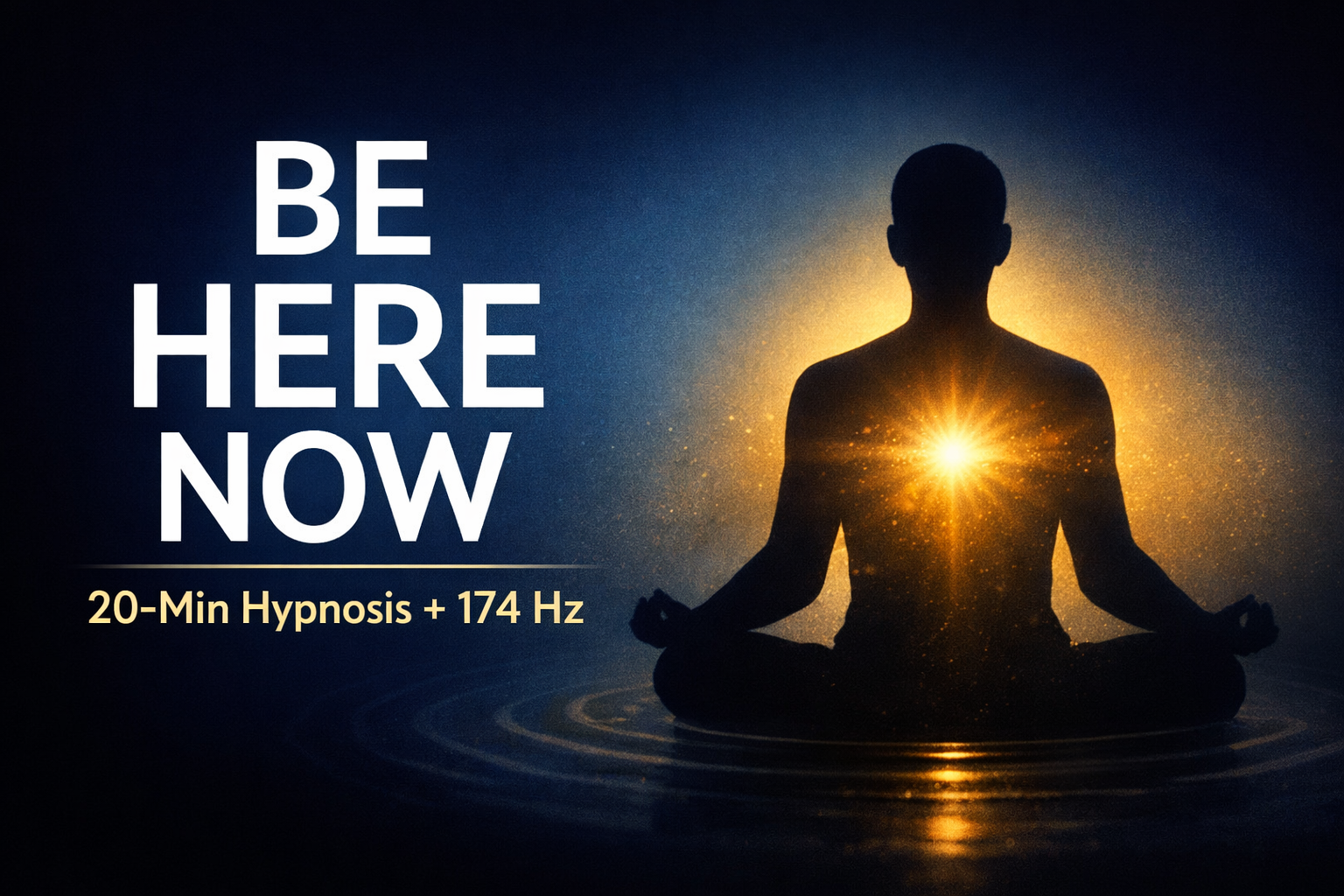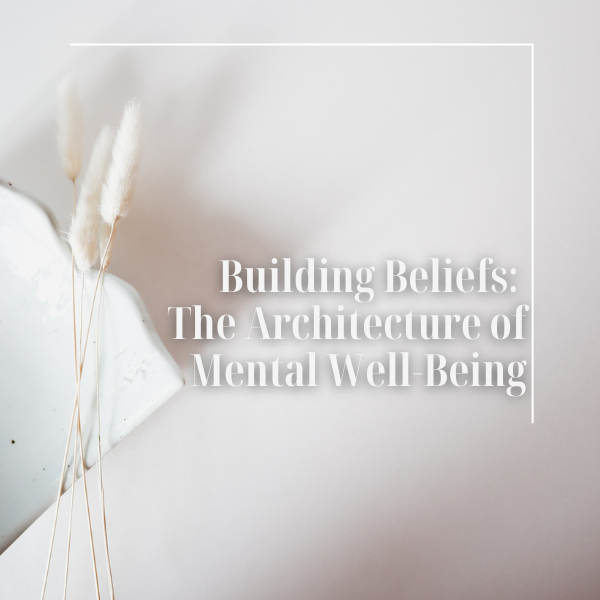
Learning Presence: A Practical Path to Being Here
The concept of “presence” has become increasingly important in mental health and performance psychology. Presence refers to the capacity to fully engage with the current moment—mentally, emotionally, and somatically—without being pulled into rumination about the past or anticipatory worry about the future. Learning presence is not about achieving a blank mind or perfect tranquility; rather, it involves building the attentional skill of noticing and returning.

Building Beliefs: The Architecture of Mental Well-Being
Think of your mind as a house.
Your beliefs are the foundation, walls, and roof—the invisible structures that determine whether you feel safe, supported, and able to weather life’s storms. If those structures are shaky, the whole house trembles. But if they’re strong and well-built, you have shelter, safety, and a place to grow.
We don’t often stop to examine our beliefs. They form quietly, through experience, culture, relationships, and repetition. Yet, they directly shape our mental health. The belief that “I am capable” fosters resilience. The belief that “I am unworthy” invites suffering.
The good news? Beliefs are not permanent. We can consciously design and build ones that support our mental well-being.

The Importance of Discipline in Attaining Your Goals
When people think about success, they often focus on motivation, talent, or luck. While these factors can help you get started, they are rarely what carry you across the finish line. The quiet force behind lasting achievement is discipline. Discipline is not about rigidity or self-punishment—it is about gentle consistency, intentional choices, and staying aligned with your goals even when emotions fluctuate.

The Gentle Power of Motivation in Attaining Success
Success does not always come from force or urgency. Often, it grows quietly from within—guided by motivation that feels steady, compassionate, and aligned with purpose. At Dr. Hayes Guided Meditation, motivation is viewed not as pressure to perform, but as an inner invitation to move toward what truly matters.

How Stress Affects Health—and How Meditation Helps Restore Balance
Stress is a natural part of life. In small doses, it can help us stay alert and motivated. But when stress becomes chronic, it quietly begins to affect nearly every system in the body. Many people notice stress mentally—racing thoughts, irritability, or anxiety—yet its physical impact is just as powerful and often overlooked.

7 Myths We Tell Ourselves That Hold Us Back
We all carry beliefs that shape the way we move through the world. Some of these beliefs help us grow. Others sit quietly in the background and limit what we think is possible. The tricky part is that the most damaging beliefs often sound reasonable. They slip into our decisions, our self talk, and our plans without being questioned. Here are seven of the most common myths we tell ourselves and how they shrink our potential.

When Gambling Becomes a Way to Cope With Stress: Understanding the Pattern and Finding Healthier Paths
In today’s fast-paced world, stress has become a constant companion for many people. Long work hours, financial worries, relationship challenges, and the pressure to “always keep going” can feel overwhelming. When life becomes too heavy, it’s common to reach for something—anything—that provides a quick sense of relief. For some, that outlet becomes gambling.
At first, gambling may look harmless: a night out at the casino, a few rounds of online slots, or placing small bets on sports. It can even feel exciting, distracting, and rewarding. But for individuals who turn to gambling to manage stress, that temporary excitement can become a cycle that’s difficult to break.

The Benefits of Bhramari Pranayama: The Humming Bee Breath for Calm and Clarity
In a world filled with constant noise, pressure, and overstimulation, many people struggle to find moments of genuine quiet. Bhramari Pranayama—also known as the humming bee breath—offers a simple, soothing, and science-backed way to calm the mind and ease the nervous system. This gentle breathing technique creates a soft humming sound during exhalation, similar to a bee, which naturally slows mental chatter and invites deep internal peace.
Whether you're new to meditation or experienced in breathwork, Bhramari is one of the most accessible and immediate calming tools available.

When Coping Becomes a Crisis: Understanding Self-Medication with Alcohol and Drugs
In the world of mental health, one of the most common—and most misunderstood—struggles people share with me is the quiet drift into self-medication. It rarely starts dramatically. In fact, it often begins with a simple thought: “I just need something to help me relax.” A glass of wine to take the edge off after a long day. A few drinks to feel more sociable. A pill to help numb the anxiety or help you sleep. For many people, these moments feel harmless. But over time, what starts as a short-term coping strategy can turn into a long-term problem.

Understanding the Holiday Blues: Why This Season Isn’t Always Merry
The holiday season is often described as a time of joy, connection, and celebration—but for many people, this time of year brings something very different: the holiday blues. As clinicians, we hear the stories behind the smiles. Many individuals quietly navigate sadness, stress, and emotional exhaustion during a season that feels like it should be cheerful. If you’ve ever felt this way, you’re far from alone.

Creating Internal Calm by Changing Your Inner Dialogue
Many people move through their days with a constant stream of thoughts running quietly in the background. For some, that inner voice is supportive and steady. But for many others, it can be harsh, critical, or anxious—repeating messages learned from past experiences, stress, and overwhelm. As mental health clinicians, we hear these inner messages spoken aloud every day: “I’m not good enough,” “I always mess things up,” “No one cares what I think.” And hearing these patterns doesn’t mean someone is broken—it simply means the mind has practiced a particular script for so long that it has become automatic.

5 Therapist-Backed Steps to Boost Your Confidence
Confidence isn’t a fixed trait you’re born with — it’s a set of skills and habits you can build. In therapy rooms, many professionals guide clients through a sequence of steps that strengthen self-belief. Here are five concrete, research-informed steps you can adopt, drawn from the therapeutic literature.

Building Confidence: Practical Tools You Can Use Every Day
Confidence isn’t something you either have or don’t have—it’s something you build like a muscle. Many people believe confidence comes from achievement, success, or praise. But actually, confidence grows from the way you talk to yourself, how you respond to challenges, and the habits you practice consistently. The good news? You don’t have to wait for a promotion, a new relationship, or some big milestone to start feeling confident. You can begin today with small, daily actions.

“Healing Through the Senses: A Mindful Approach to Changing Behavior”
Change begins in the mind, but lasting change engages the whole body. Our senses—sight, sound, touch, taste, and smell—play a powerful role in shaping how we feel, think, and act. When we consciously use sensory experiences to support new habits, we can rewire our brains and make positive behaviors feel more natural and rewarding.

7 Ways to Be Mindful: A Therapist’s Guide to Everyday Calm
In today’s fast-moving world, mindfulness can feel like a luxury — something we know we “should” practice but struggle to fit in. As a therapist, I often remind my clients that mindfulness isn’t about silencing your thoughts or achieving perfect calm. It’s about learning to be present — right here, in this moment — without judgment.

How to Create Meaningful Change in Your Life: A Personal Journey Toward Growth
Change is one of the few constants in life, yet it’s often one of the hardest things to embrace. Whether you want to improve your health, build confidence, or overcome old habits, meaningful transformation doesn’t happen overnight—it happens through awareness, intention, and consistent practice.
In this therapeutic guide, we’ll explore how to create change in your life using research-based techniques from psychology, habit science, and mindfulness.

A Therapeutic Guide to Controlling Your Mind: Mastering Inner Calm and Clarity
In today’s fast-paced world, the mind often feels like an untamed storm—racing thoughts, intrusive worries, and emotional turbulence can make inner peace seem unattainable. Yet, learning to control your mind is not about silencing every thought or emotion. It’s about developing awareness, discipline, and self-compassion to guide your thoughts instead of being ruled by them. This therapeutic guide explores evidence-based strategies for achieving mental balance and emotional control.

Youth Mental Health in Crisis: What the Data Reveal and What We Must Do
There is growing evidence that youth mental health in the United States (and globally) is facing a serious crisis. Adolescents and young people are reporting rising rates of depression, anxiety, suicidal thoughts, and other mental health challenges — often without adequate access to support. This post takes a look at what recent data tell us, core drivers of the crisis, and what interventions could help.

Healing the Mind After Birth: How CBT Reduces Postpartum Depression
Postpartum depression (PPD) is a significant mental health concern that affects many women in the weeks and months following childbirth. Characterized by intense feelings of sadness, anxiety, hopelessness, guilt, and difficulty bonding with the baby, PPD can interfere with a woman’s ability to care for her child and herself. Beyond the emotional toll, untreated PPD has been associated with negative outcomes for infant development, attachment, and overall family functioning. Cognitive Behavioral Therapy (CBT) has emerged in recent years as a promising intervention to help mitigate symptoms of postpartum depression. This essay outlines the nature and impact of PPD and reviews how CBT can help, drawing on empirical studies from the past 20 years.

The Healing Power of Psychotherapy: How Talking Changes the Brain
When life feels heavy and overwhelming, many people think they simply need to “push through” or keep their struggles hidden. Yet inside, the pain grows, sometimes shaping how the brain responds to the world. Psychotherapy—often called “talk therapy”—is more than a conversation. It is a scientifically supported process that reshapes the mind, rewires the brain, and helps individuals reclaim their lives.
